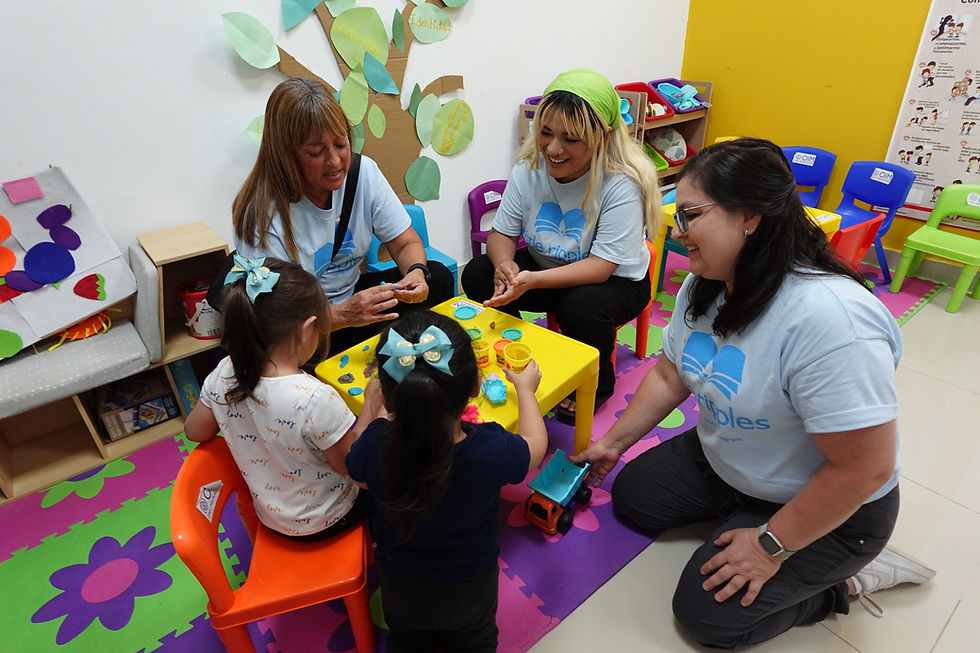Global Citizens: Fostering Empathy in the Next Generation
- Jessica Birzin
- Aug 24, 2016
- 3 min read
[et_pb_section fb_built=”1″ admin_label=”section” _builder_version=”3.22″ custom_margin=”||-56px|||”][et_pb_row admin_label=”row” _builder_version=”3.25″ background_size=”initial” background_position=”top_left” background_repeat=”repeat” custom_padding=”3px||0px|||”][et_pb_column type=”4_4″ _builder_version=”3.25″ custom_padding=”|||” custom_padding__hover=”|||”][et_pb_text admin_label=”Text” _builder_version=”4.5.7″ background_size=”initial” background_position=”top_left” background_repeat=”repeat” custom_padding=”||22px|||” hover_enabled=”0″]
For more than six months now, a small group of Little Ripples Expert Teacher Advisors (ETAs) has been working hard to answer two important questions, “How do we connect our children here with the refugee children of Little Ripples?” and “How do we use that connection to foster empathy and create the next generation of global citizens working for peace?”
Little Ripples is an innovative preschool program that blends a basic curriculum steeped in cutting-edge early childhood development philosophies (such as student-emergent and play-based learning) with activities like free play and mindfulness that can be enjoyed even in the harsh conditions of refugee camps. Little Ripples teachers — all refugees living in the community with the students — then fill out the curriculum using their own cultural components. In the harsh environment of eastern Chad, in a community with low levels of education, this program has been successful beyond our expectations.
As iACT began to share the success of Little Ripples, more and more people—especially preschool educators and teachers across the United States—have wanted a way to connect their students to the children attending Little Ripples. Teachers know this connection can enrich the lives of their students, but they needed a curriculum and packaged resources to effectively create that connection. Additionally, iACT also wanted the program to foster connection and empathy and create a foundation for global ambassadorship at the next generation’s earliest stages of development.
iACT is now answering this need by introducing Global Citizens (GC). GC is an iACT education program for U.S.-based preschools that connects children ages three to five with their peers living in Darfuri refugee camps. It fosters these connections through empathy-based and developmentally appropriate tools, activities, and resources that meet nationally-recognized preschool learning foundations.
First piloted and co-created with My Escuelita: Spanish for Kids in Redondo Beach, CA, Global Citizens is a 4-week, daily curriculum that can be used with and tailored to a diversity of early childhood education philosophies. Each day, the program begins with the same simple mindfulness and breathing exercises that Little Ripples students participate in. Just as Little Ripples utilizes play-based and child-driven components, so does GC. Additionally, each daily lesson includes an objective, resources, and activities that teach students about themselves and the life of their refugee peers while focusing on social-emotional development, language and literacy, language development (can be tailored to dual-immersion language programs), mathematics, science, performing arts, physical development, health, and history/social science. GC is a safe and appropriate way to share the joys of participation, cultural ambassadorship, and empathy-based living within the U.S. community and to do so at the earliest stages of children’s learning and development.
iACT has for years focused on the personal relationship between those affected by the genocide in Darfur and those who are willing and able to help. We put relationship at the center of our advocacy and education. It is knowing the story of Guisma and her family, watching them grow into young adults, and empathizing with their suffering that has made the fight for peace and justice in Darfur so personal for so many of us. With Global Citizens, now there is an age and developmentally appropriate way to share not only the story of Darfur, but the culture, the day-to-day life, and the hope of our friends in Darfur.
To learn more read our Global Citizens Overview and Lesson Objectives.

[/et_pb_text][/et_pb_column][/et_pb_row][/et_pb_section]


